Are you navigating the complexities of a spousal support agreement? Establishing clear terms can make a significant difference in ensuring both parties feel secure and understood during this challenging time. In this article, we'll break down the essential components of a spousal support agreement, offering valuable tips and insights that you can easily apply. So, let's dive in and explore how to create a mutually beneficial arrangement that suits your unique situationâread on to find out more!

Legal Identification of Parties
In a spousal support agreement, precise legal identification of parties is crucial. The full legal names of both spouses must be included, along with their current residential addresses. For instance, John Smith, residing at 123 Elm Street, Springfield, State, Zip Code, and Jane Doe, residing at 456 Maple Avenue, Springfield, State, Zip Code. Additionally, it is important to include other identifying details such as the date of marriage, the date of separation if applicable, and the respective roles of each party in the agreement, clearly establishing which spouse will provide support and which spouse will receive support. This clarity ensures the agreement is binding and enforceable.
Financial Disclosures and Obligations
Spousal support agreements require detailed financial disclosures from both parties to ensure equitable arrangements. Monthly income statements, including salary, bonuses, and other sources of income such as rental properties, need to be accurately documented. Expenses, particularly those related to housing, utilities, and childcare, should also be clearly outlined. Assets, including bank accounts, retirement funds, and investment portfolios, must be thoroughly itemized. Additionally, debts such as credit cards, loans, and mortgages require full disclosure to assess financial obligations comprehensively. Legal guidance is advisable to navigate obligations under local laws or specific jurisdiction regulations, ensuring compliance and fairness in the agreement.
Duration and Modification Conditions
A spousal support agreement outlines the financial assistance one partner provides to the other following separation or divorce, emphasizing key aspects such as duration and modification conditions. Duration specifies the length of time support will be provided, often determined by events like remarriage, cohabitation, or reaching a certain milestone, such as a partner's completion of education or increase in income. Modification conditions establish scenarios allowing changes to support payments, covering income fluctuations, loss of employment, or retirement. It is crucial these provisions are documented in the agreement to ensure clarity and enforceability in jurisdictions like California, where spousal support guidelines can vary significantly.
Payment Structure and Frequency
Establishing a clear payment structure and frequency is essential for a spousal support agreement in family law. Regular payments, often stipulated on a monthly basis, can ensure financial stability for the receiving spouse. Typical amounts may vary widely, with some cases involving several hundred to several thousand dollars, depending on factors such as the length of marriage, financial disparities, and living expenses in specific locations. Payment methods can include bank transfers or checks, which should also be clearly defined in the agreement. It is crucial to outline terms for possible modifications, based on changes in circumstances like employment status or fiscal health. Transparency in how payments are tracked can prevent disputes, ensuring both parties adhere to the outlined provisions. Regular reviews of the agreement can also be beneficial, particularly as life circumstances evolve over time.
Dispute Resolution and Governing Law
Dispute resolution mechanisms are crucial in a spousal support agreement, especially in jurisdictions like California where family law can be complex. Mediation, involving a neutral third party, can help couples resolve disagreements amicably, reducing emotional stress. Arbitration, on the other hand, is a more formal process where an arbitrator makes binding decisions. Governing law refers to the legal statutes that will apply, such as the California Family Code, which outlines spousal support guidelines based on factors like duration of marriage and income disparities. Including specific procedures for resolving disputes can help avoid litigation, providing clarity and promoting cooperation between involved parties.
Letter Template For Spousal Support Agreement Samples
Letter template of spousal support agreement for temporary financial assistance.
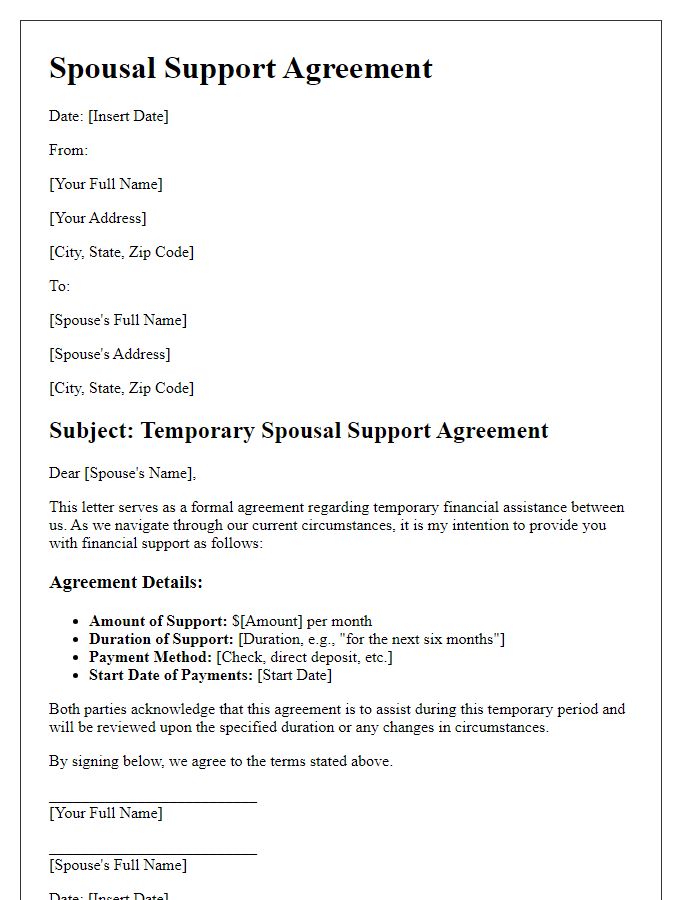
Letter template of spousal support agreement for long-term support considerations.
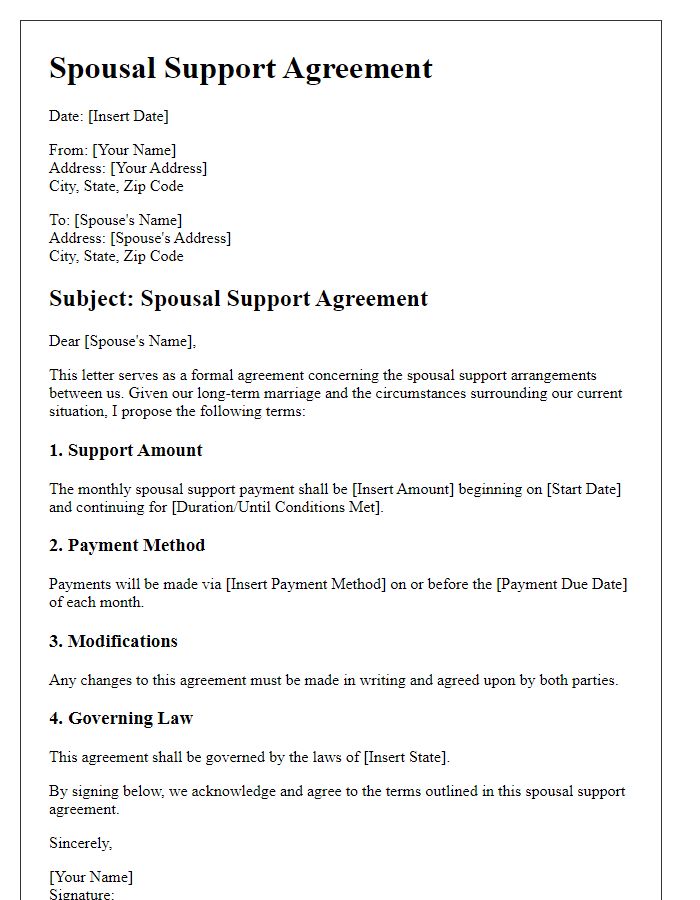

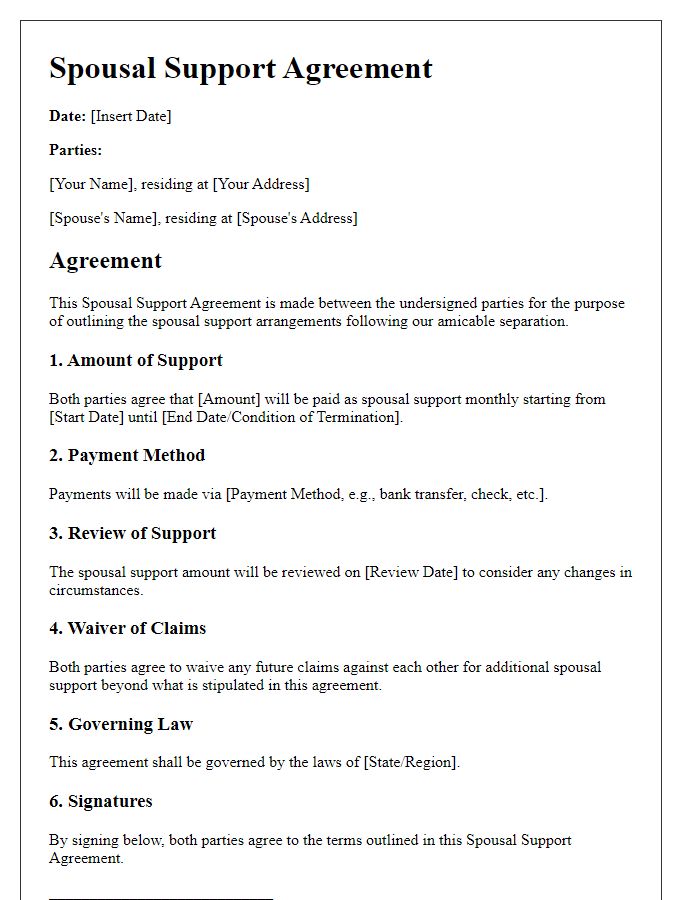
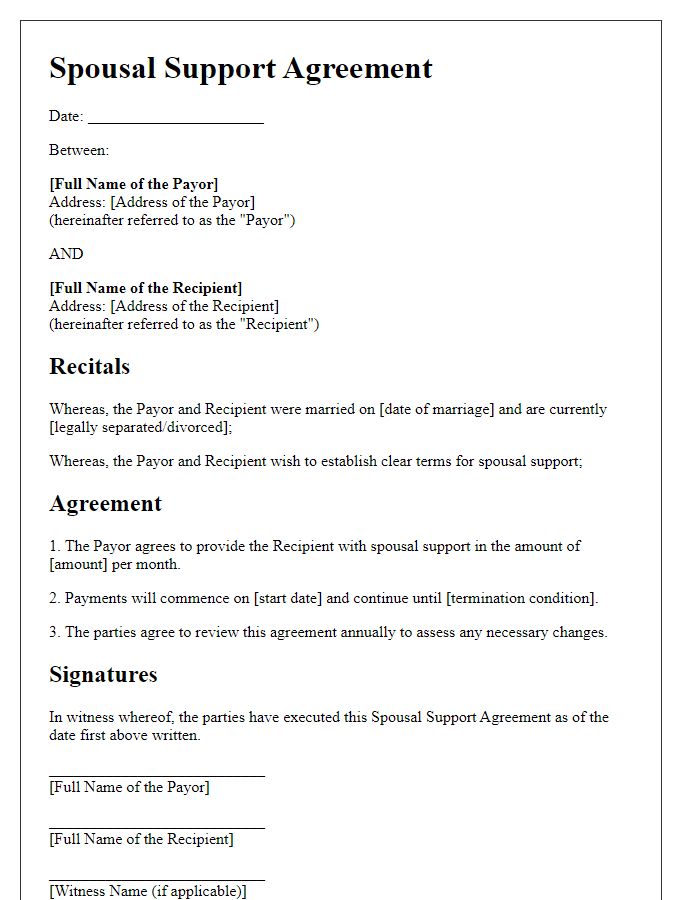
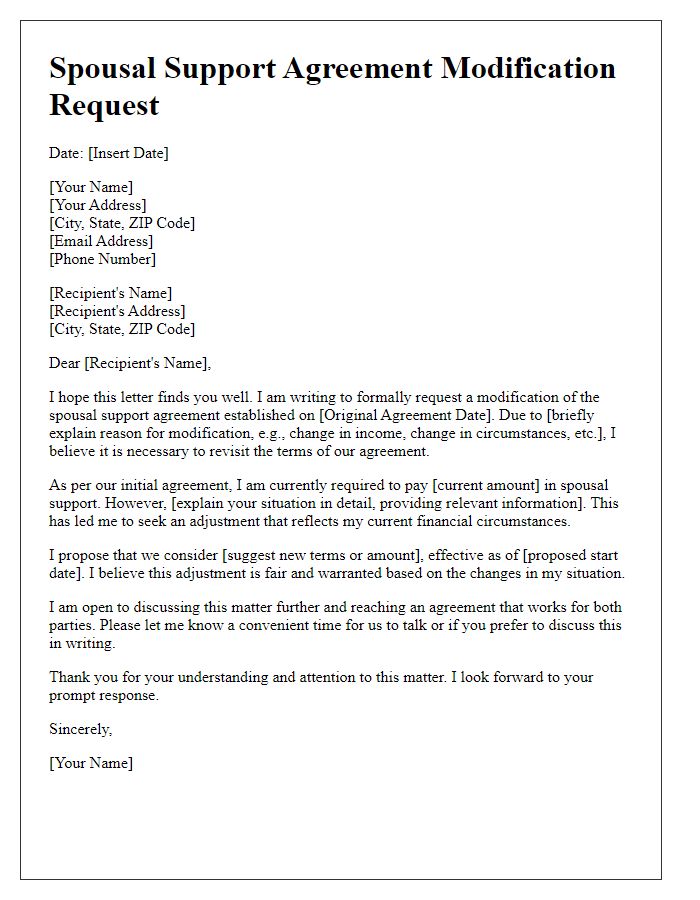
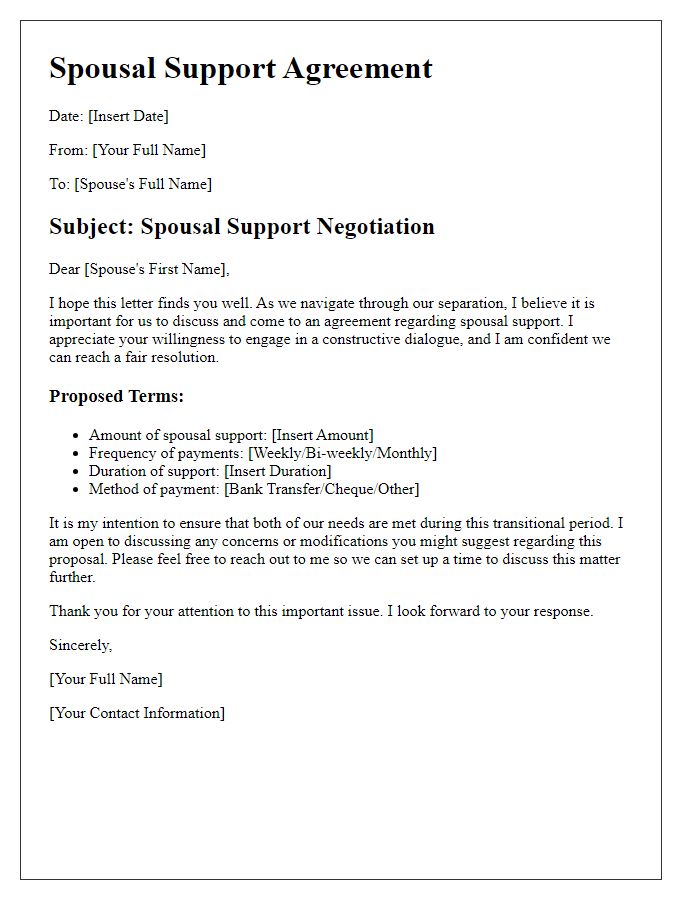
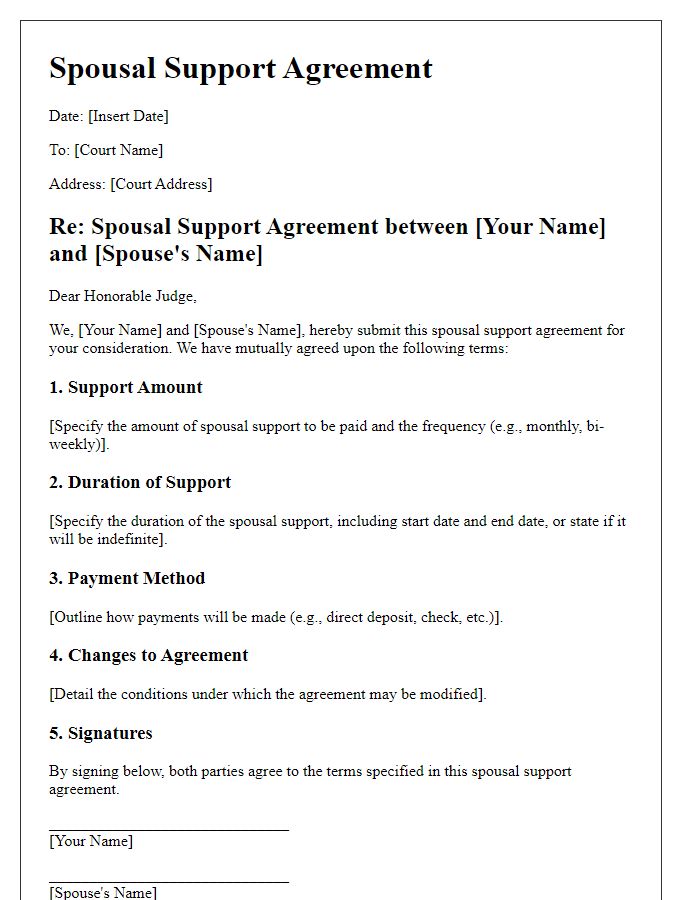
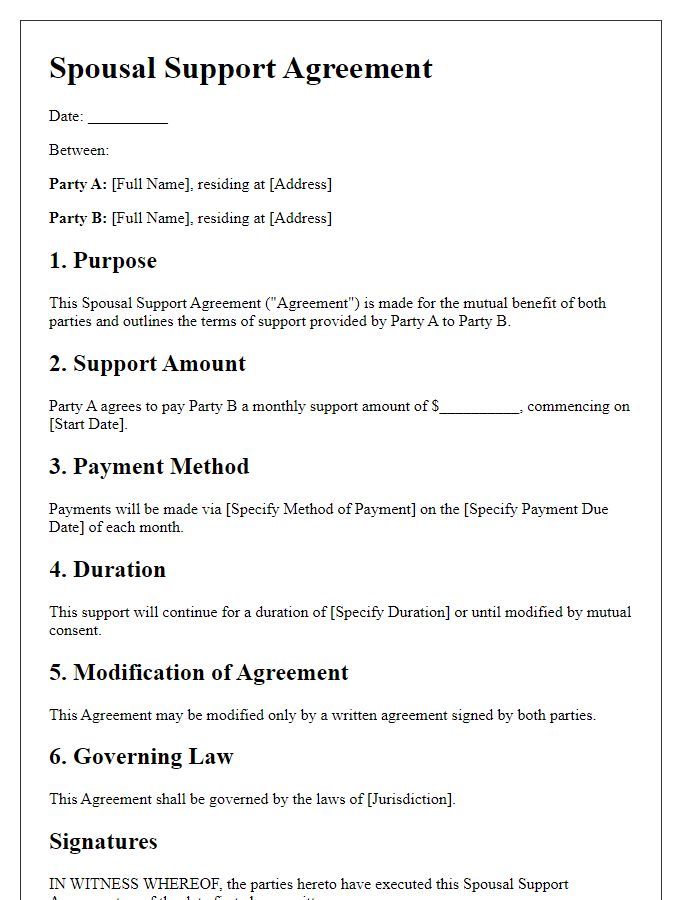
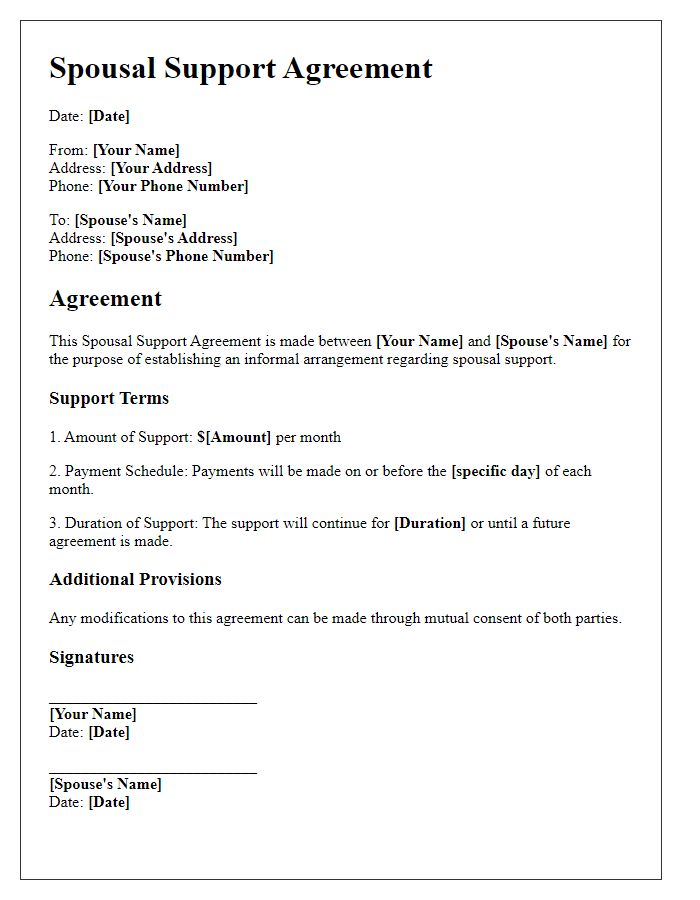
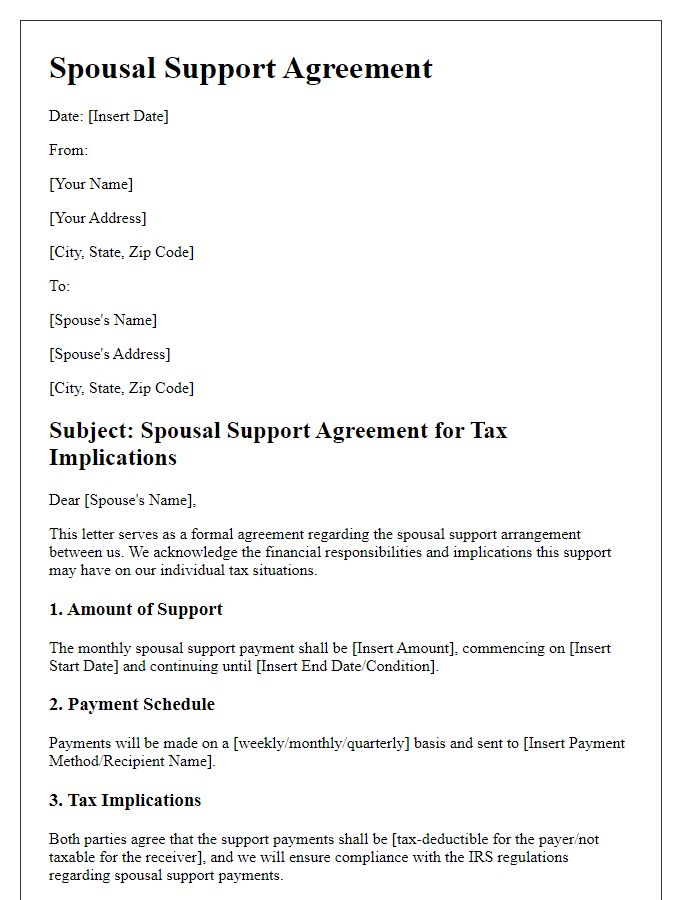


Comments